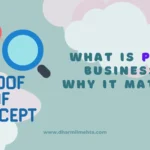In today’s digital era, affiliate marketing has emerged as a buzzword that’s reshaping how we perceive online business opportunities. But amid the flurry of success stories and alluring promises, many still find themselves grappling with a critical question: is affiliate marketing legit? The mere mention of this topic often sparks debates, with skeptics raising concerns about whether affiliate marketing might be just another pyramid scheme or a scam. As we delve into this intriguing realm, it’s essential to uncover the truth behind these allegations and assess whether affiliate marketing stands as a genuine pathway to financial freedom.
Imagine this: you’re scrolling through social media, and every other post seems to tout the wonders of affiliate marketing. You encounter terms like digital marketing and affiliate marketing, intertwined in a narrative that promises riches with minimal effort. Naturally, you might wonder, is affiliate marketing legitimate? Or could it be that beneath the glossy surface lies a deceptive scheme aimed at exploiting the unwary? It’s crucial to sift through the hype and focus on tangible, verifiable facts.
Affiliate marketing operates on a straightforward principle: promoting products or services and earning commissions for each sale made through your unique referral link. This concept, while simple, has fueled a vast and diverse industry. However, this simplicity can sometimes mask more complex realities. For instance, how does affiliate marketing differ from a pyramid scheme? Unlike a pyramid scheme, which relies on recruiting new members to generate income, legitimate affiliate marketing hinges on the actual sale of products or services.
Let’s address another burning question: is affiliate marketing a scam? While some critics vehemently argue that affiliate marketing is a scam, the reality is often more nuanced. Many blogs with affiliate marketing can attest to the legitimacy of well-established programs and reputable affiliates who earn a decent income through genuine efforts. Yet, like any industry, affiliate marketing does have its share of bad actors. Hence, the challenge lies in distinguishing between credible affiliate programs and dubious ones that might tarnish the entire field’s reputation.
Moreover, consider the distinction between digital marketing and affiliate marketing. While they often overlap, affiliate marketing is a specific subset within the broader realm of digital marketing. Understanding this nuance can help clarify whether affiliate marketing is real or just another fleeting trend. It’s also worth noting that how legit is affiliate marketing depends significantly on the program you choose. Some are affiliate programs legit and offer robust structures and support, whereas others might fall short.
In your quest for answers, exploring a blog for affiliate marketing or engaging with reputable blogs with affiliate marketing can provide insightful perspectives and real-world examples. These sources often highlight success stories and practical advice, offering a window into the everyday realities of affiliate marketing. They can help you navigate through various programs, dispel myths, and identify genuine opportunities.
Ultimately, the question of whether affiliate marketing is a scam or real boils down to research and discernment. By evaluating different affiliate marketing programs, scrutinizing their legitimacy, and understanding their operational models, you can form a well-rounded view of the industry. As we explore the 10 facts to know about is affiliate marketing legit, remember that informed decisions are always the key to unlocking the potential of this dynamic field. So, let’s dive into these facts and separate the truth from the myths surrounding affiliate marketing.
Learn 5 Ways Ahrefs vs SEMrush Surprised Digital Marketers
1. Affiliate Marketing vs. Pyramid Schemes
A frequent question that arises is is affiliate marketing a pyramid scheme? To dispel this myth, it’s essential to understand the fundamental differences. Affiliate marketing involves promoting products or services and earning a commission based on actual sales. It’s a straightforward model where affiliates earn money when their referrals make a purchase.
In contrast, a pyramid scheme relies on recruiting new members who pay fees to join, with the promise of earning money by recruiting others. This structure is inherently unsustainable and illegal in many places. Unlike pyramid schemes, affiliate marketing programs do not require recruitment for income but focus on sales and referrals. Thus, affiliate marketing is legitimate when approached correctly.
2. The Truth About Affiliate Marketing Scams
Many people ask, is affiliate marketing a scam? The term “scam” can sometimes be a catch-all for any program that doesn’t meet expectations. While there are dishonest individuals and poorly managed programs, the affiliate marketing industry itself is not inherently a scam. Affiliate marketing legit is characterized by transparency, genuine products, and ethical practices.
However, it’s crucial to perform due diligence. Research are affiliate programs legit by reading reviews, checking company backgrounds, and verifying their operations. This will help you avoid falling prey to fraudulent schemes that use the affiliate marketing guise to mislead.
3. Understanding the Difference: Digital Marketing and Affiliate Marketing
A common misconception is that digital marketing and affiliate marketing are the same. In reality, affiliate marketing is a subset of digital marketing. Digital marketing encompasses a wide array of strategies, including SEO, PPC, content marketing, and social media. Affiliate marketing focuses specifically on promoting products and earning commissions through referral links.
Understanding this distinction is important for assessing how legit is affiliate marketing. While digital marketing includes numerous approaches, affiliate marketing zeroes in on performance-based income.
4. Evaluating Affiliate Marketing Programs
To determine whether affiliate marketing is legitimate, evaluating the specific affiliate marketing programs you’re considering is essential. Not all programs are created equal. Look for programs that offer:
- Clear Terms and Conditions: Transparent policies about commissions, payouts, and promotional guidelines.
- Positive Reviews: Testimonials from other affiliates that can provide insight into their experiences.
- Reputable Brands: Associations with well-known and respected companies.
By assessing these factors, you can ensure that the programs you join are both credible and profitable.
5. Amazon Affiliate Legit: A Case Study
One prominent example of a legitimate affiliate program is the Amazon affiliate program, known as Amazon Associates. Many people wonder, is Amazon affiliate legit? The answer is yes. Amazon Associates is one of the largest and most respected affiliate programs globally. It allows affiliates to earn commissions by promoting Amazon products.
The program’s legitimacy is underscored by Amazon’s reputation and the transparency of its operations. Affiliates benefit from Amazon’s extensive product range and trusted platform, making it a reliable choice for many.
6. The Reality of Affiliate Marketing Scams
Despite the many legitimate opportunities, some argue that affiliate marketing is a scam. These claims usually stem from misunderstandings or negative experiences with poorly structured programs. Common issues include:
- Misleading Promises: Unrealistic income claims that don’t reflect the effort required.
- Hidden Fees: Programs that charge upfront fees without providing value.
- Lack of Support: Programs that offer little to no assistance or resources for affiliates.
Avoiding these pitfalls involves thorough research and cautious evaluation of any program before joining.
7. Are Affiliate Programs Legit: What to Look For
To answer are affiliate programs legit, consider these key aspects:
- Payment Structure: Reliable programs offer regular, transparent payments.
- Support and Resources: Access to tools, training, and support to help you succeed.
- Product Quality: The programs should feature high-quality products or services that provide real value.
Programs that excel in these areas are more likely to be legitimate and worthwhile.
8. Blogs with Affiliate Marketing: A Valid Resource
Exploring blogs with affiliate marketing can offer valuable insights into the industry’s legitimacy. These blogs often feature:
- Case Studies: Real-world examples of successful affiliate marketing strategies.
- Expert Opinions: Insights from experienced marketers about the industry’s trends and best practices.
- Tutorials and Guides: Step-by-step instructions on how to effectively engage in affiliate marketing.
Reading well-regarded blog for affiliate marketing can help you navigate the landscape and make informed decisions.
9. Is Digital Marketing and Affiliate Marketing Same: Clearing the Confusion
To clarify, is digital marketing and affiliate marketing same? The answer is no. Digital marketing is a broad field that includes various tactics for online promotion, while affiliate marketing is a specific approach within this field focused on earning commissions through sales referrals. Understanding this distinction helps in setting realistic expectations and choosing the right strategies.
10. The Final Verdict: Is Affiliate Marketing Legit
In conclusion, is affiliate marketing legit? Yes, when practiced with integrity and thorough research. The industry offers numerous opportunities for those willing to invest time and effort. By choosing reputable programs, avoiding scams, and understanding the nuances between affiliate marketing and broader digital marketing strategies, you can confidently engage in affiliate marketing and enjoy its benefits.
By exploring these ten facts, you now have a clearer perspective on how legit is affiliate marketing and can make well-informed decisions about your involvement in this dynamic industry.
Visit my website for more!
FAQs
Is affiliate marketing a legitimate way to earn money?
Yes, affiliate marketing is a legitimate and widely used business model. It involves promoting other people’s products or services and earning a commission for each sale or lead generated.
Is affiliate marketing a pyramid scheme?
No, affiliate marketing is not a pyramid scheme. Pyramid schemes rely on recruiting others to earn money, while affiliate marketing focuses on promoting products and earning commissions based on individual efforts.
Is affiliate marketing a scam?
No, affiliate marketing itself is not a scam. However, as with any business, there may be fraudulent individuals or companies involved. It’s essential to research and choose reputable affiliate programs.
What is the difference between digital marketing and affiliate marketing?
Digital marketing encompasses a broad range of online marketing activities, including search engine optimization (SEO), social media marketing, email marketing, and content marketing. Affiliate marketing is a specific type of digital marketing that focuses on promoting products or services through affiliate links.
How do I get started with affiliate marketing?
To start with affiliate marketing, you’ll need to choose a niche, build a website or online presence, join affiliate programs, and create content that promotes the products or services you’re affiliated with.
Are there any reputable affiliate programs I can join?
Yes, there are many reputable affiliate programs available. Some popular options include Amazon Associates, ClickBank, ShareASale, and Commission Junction.
Is Amazon’s affiliate program (Amazon Associates) legitimate?
Yes, Amazon Associates is a legitimate affiliate program offered by Amazon. It allows you to earn commissions by promoting Amazon products through your website or other online channels.
How much money can I make with affiliate marketing?
The earning potential in affiliate marketing varies depending on factors such as your niche, the quality of your content, your promotional efforts, and the commission rates offered by the affiliate programs you participate in.
Is it difficult to succeed in affiliate marketing?
While affiliate marketing can be rewarding, it requires effort, dedication, and a well-thought-out strategy. Success often comes with time and experience.
Can I combine affiliate marketing with other online business ventures?
Yes, affiliate marketing can be a great way to supplement income from other online businesses such as blogging, vlogging, or selling digital products.












